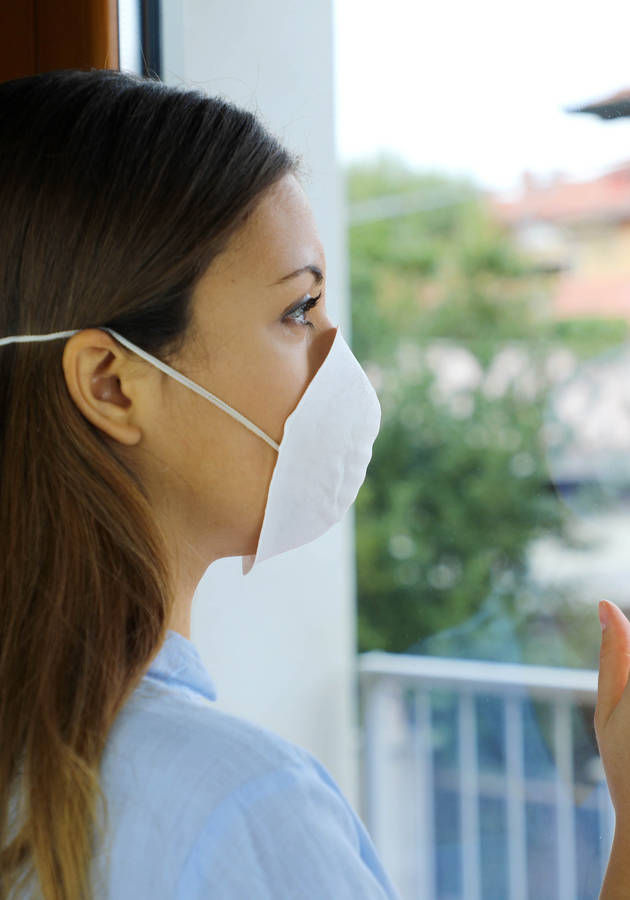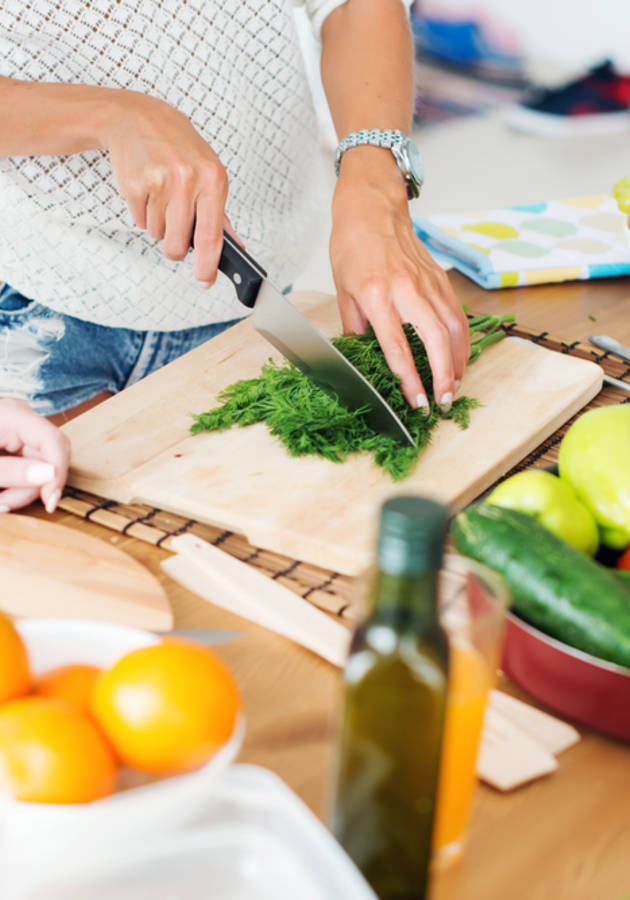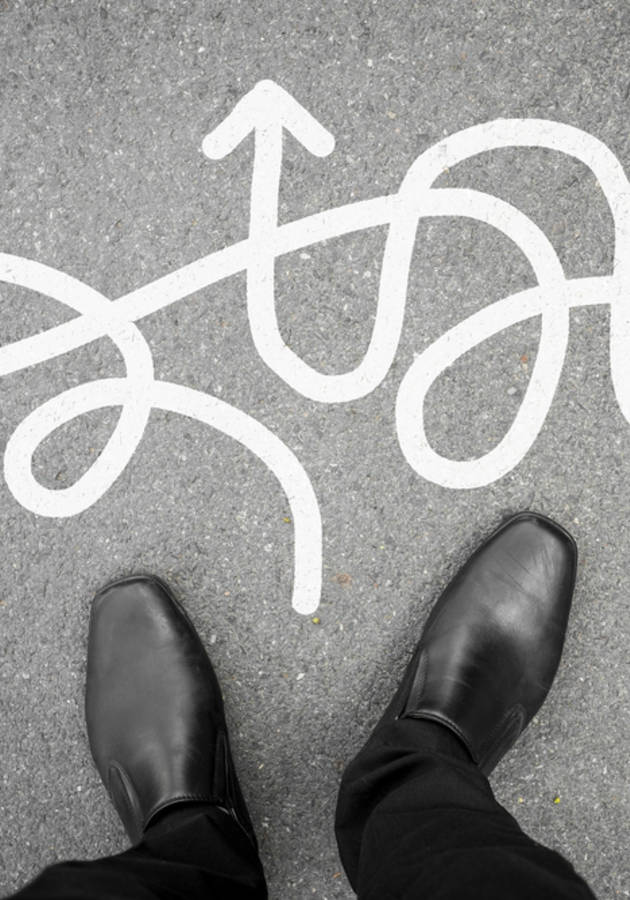Sometimes, anxiety can be a useful emotion: it can help us stay safe and do the right thing in the face of danger. However, most of the time, anxiety can be absolutely devastating to our mental health. Dealing with it is especially difficult in cases of prolonged uncertainty, as is the current coronavirus pandemic. Fortunately, there are several things you can do to alleviate its effects.
Stay informed – but don’t drive yourself insane
According to renowned psychologist and bestselling author Dr. Harriet Lerner, “anxiety escalates and fantasies flourish in the absence of information.” This should surprise nobody: when only a few certainties are involved, too many things are possible, and ambiguity is directly related to increased stress.
Unfortunately, too much information has pretty much the same effect. Since the human brain is programmed to thrive on novelty and constantly seeks it, it has problems dealing with unlimited quantities of new information. Too much data causes the brain and blood levels of cortisol to rise, which leads to memory loss, confusion, and a state of disquiet and restlessness.
It’s a vicious cycle. Even though knowledge is the best way to fight anxiety caused by uncertainty, too much knowledge is just as stressful. As often, balance is the key – tempting as it might be to seek out information all the time to assert control over events, if you don’t self-impose limits to your curiosity, this entire stress-alleviating project can quickly backfire. The solution? A recent survey of a variety of experts conducted by Berkeley’s Greater Good Science Center came up with the following suggestions:
- Devise a positive morning routine. Starting your day with bad news is not good for your health. A recent Harvard study has discovered that just three minutes of bad news in the morning can lead to eight hours of grumpiness. And you know the news is going to be bad in the following few weeks – or even months. So, find a better way to start your day than with a live news feed or yesterday’s COVID-19 stats. If possible, don’t even turn your phone on for the first few hours of the day.
- Stick to trustworthy sources. The world is rife with misinformation. You must avoid relying on depoliticized news and unregulated sources, but this is especially true in the case of pandemics. So, make sure you get your information and advice from reliable sources. Facebook – be aware – is not one: as Stanford media expert Jeff Hancock says, at a time when it’s difficult to distinguish between reputable and nonreputable sources, “getting your news from news outlets in social media is problematic.”
- Limit how often you check updates. Immediately turn your phone’s breaking-news alerts off. More importantly, try to limit the time you spend reading or listening to coverage of the outbreak. “Don’t let yourself sit there in front of your computer and constantly look up and refresh your screen to see what’s going on,” advises Alice Holman, researcher of news coverage of disasters. “Things are changing fast, but we already know what we need to do.”
- Mix in some happy news. If bad news is akin to junk food, good news is similar to fresh fruits. So, a daily dose of good news is never a bad thing. Most major newspapers have sections dedicated solely to positive, constructive stories. The Solutions Journalism Network reports only on evidence-based responses to social problems. And just recently, hoping to lift people’s spirits, actor John Krasinski launched a new YouTube show called “Some Good News,” imagined as an antidote to the coronavirus anxiety.
- Be careful what you share. Think about how inaccurate information might affect other people. Don’t share with other people what you can – only what you must. Try to verify every information before passing it on.
Focus solely on what you can control
Two millennia ago, ancient Greek Stoic philosopher Epictetus advocated that events themselves don’t disturb us, but only our judgments about them. For example, you can’t control the weather, so worrying if it will rain or not will only affect your peace of mind – not the actual outcome. “Make the best of what is in your power and take the rest as it happens,” Epictetus famously advised. “Because some things are up to us, and some things are not.”
No matter how much you might want to, the overall spread of the coronavirus is not solely in your control. But even though you can’t change the behavior of other people, you can take steps to reduce the risk – both for yourself and your community. These are the basic protective measures against the new coronavirus, according to the World Health Organization, all things that are in your control:
- Wash your hands frequently. Soap kills germs and is your best ally in your fight against the coronavirus. So, wash your hands regularly and thoroughly – even to the point of becoming obsessed with it. It’s better to be vigilant and overreact than underreact and be sorry.
- Maintain social distancing. Social distancing is always a good way to slow the spread of viruses. The equation is rather simple: the more space between you and other people, the harder it will be for the coronavirus to spread. So, try to maintain at least 1 meter (3 feet) distance between yourself and other people at all times.
- Avoid touching eyes, nose, and mouth. The coronavirus can’t infect you through your skin. So, the less you touch your mouth, nose, and eyes with your hands, the fewer chances there are of the virus entering your body.
- Practice respiratory hygiene. Cover your mouth and nose with a tissue or your bent elbow when you cough and sneeze. Then dispose of the tissue immediately.
- If you have fever, cough, and difficulty breathing, seek medical care early. If you think you have the symptoms of COVID-19 – stay at home and immediately call the relevant institution. You might be endangering other people’s lives if you don’t.
Don’t skip self-care: try to not neglect your health
“Everything that goes under the umbrella of ‘self-care’ is essential right now,” Dr. Lerner says. Consider the following few suggestions a starting point:
- Get enough sleep. Unless you’re still obliged to go to work, this is a good time to turn that nagging alarm off. Few things are more important to your mental and physical health as getting enough good-quality sleep. So, cut back on the caffeine and turn off your phone at least one hour before going to bed. Also, try to maintain regular sleeping patterns to get adequate rest and function properly.
- Slow down to calm yourself. Modern life is hectic, so your body and your brain are probably used to a lot of activity and tension. As a result, they might find this period alarmingly calm – and, paradoxically, stress due to a lack of strains. But this is a great time for you to readjust their sensors and cure yourself of the faux adrenaline addiction that is ordinary life. Use it.
- Eat fruits and vegetables. How our body interacts with foreign invaders, such as the coronavirus, depends on the vigor of our immune system. Fortunately, the immune system can be boosted with a proper diet. “The immune system needs many different types of fuel,” writes Anna Carthaus for Deutsche Welle. “Fruit and vegetables provide them. Your diet should be healthy and colorful: oranges, red peppers, green leafy vegetables, and red cabbage provide a potpourri of vitamins, and are especially rich in natural vitamin C.” Remember: just like most viruses, the coronavirus, too, doesn’t stand a chance against a strong immune system.
- Exercise regularly. At times like this, it’s not that difficult to fall into unhealthy patterns, which may aggravate our anxiety and depression. To counter this tendency, try to exercise regularly. According to the National Health Service of the United Kingdom, to stay fit and healthy, you should aim for 150 minutes of moderate or 75 minutes of vigorous physical exercise in any given week. You can even leave your house for one form of exercise a day – like a walk, run, or bike ride. Don’t stress yourself, however. Remember: even doing something is better than doing nothing.
- Practice mindfulness meditation. “Mindfulness meditation is a great option to incorporate into your regular routine to reduce anxiety and stress,” the United Nations says through its official site, under wellbeing tips to the organization’s personnel. And according to Megan Bell Jones, chief science officer at Headspace, this is true because mindfulness meditation “helps deactivate the emotional center of the brain, which is responsible for emotional reactivity that keeps us hooked to news cycles and fuels chronic stress. When we help our brains stay grounded, we are better able to engage the rational part of our brains.”
- Be creative. Sing, write, restart your journaling career – what’s stopping you at a time when everything’s stopped? It’s not only that immersing in creative experiences is a great way to fight monotony – but also that originality is often born out of limitations. “This cocktail of constraints and boredom is a potent trigger for innovation,” Joey Camire reminds us in an article for the World Economic Forum. Despite our losses, he says, maybe “when we emerge from this pandemic, we will be holding the new ideas we need to create a better future.”
- Enroll in a course of your choice. Use this time to learn something you’ve always wanted to know. There are plenty of free online resources that can help you start right now. Who knows: you might even be able to use the coronavirus pandemic to finally shift your career in a more desirable direction!
Stay connected with other people
Even though “social distancing” and “staying at home” are used rather interchangeably with “isolation” these days, the truth is that “isolation” doesn’t derive from the former two. Thanks to modern technology, you can stay connected with the people you love and care about, even if you never leave your house. Dr. Lerner is not the only one to say that “it’s essential to stay in communication with family, friends, neighbors, and other resources, and find ways to keep calm. Use the phone, text, email – all means possible – to stay connected to friends, neighbors, your adult children, anyone who matters to you. Especially those who induce a sense of calm rather than chaos. People need to hear your voice – and vice versa.” Here are a few things you can do to stay connected:
- Reserve time for chats and conference calls. Isolation increases the risk of depression and anxiety, so regardless of how much work you have to do, find time as often as possible to talk with your relatives, colleagues, and friends. You can even schedule conference calls with groups of people at a specific time of the day or the week. Prefer video and audio conversations over chats whenever possible – but, of course, even they are much better than no contact at all.
- Talk about something other than the pandemic. We make friends because it's nice when someone cares for us and because there are moments when we need someone who can console and calm us. But we also make friends because we enjoy some people’s company for the sheer fun and pleasure. So, resist the temptation to make the coronavirus the main topic of all your conversations. Instead, use some of them to take a much necessary break from all the bad news. Talk about nice things, reminisce about the good old days, laugh over some anecdotes from the past. You can even watch a movie with someone: there’s a nice browser extension called Netflix party that syncs video playback across devices and adds group chat.
- Avoid oversocializing. As Annabelle Timsit wrote recently for Quartz magazine, “our quarantine lives are starting to look as over-scheduled as our normal lives.” The Wall Street Journal and The Cut have already come up with two catchy terms for this strange condition: “video-call fatigue” and “Zoom hangovers.” Don’t take the joy out of the “being alone online together” experience. “Striving for social contact is normal and healthy,” writes Timsit, “and social isolation and its close companion, loneliness, are bad for our mental health. But our packed schedules leave us with little time for other things that are good for us too – like mindfulness, self-reflection, exercise, journaling, reading books, and taking up a hobby.” Being alone at home can be a restorative and transformative experience. So, don’t waste it. As Timsit warns, “whatever you decide to do with your time – when you look back on this moment in your life, the last thing you’ll want to think is ‘I wish I hadn’t spent so much time on my phone.’”
12min Tip
Fight your coronavirus anxiety with facts, preventive measures, basic well-being practices, and interhuman connection. Don’t forget: isolation isolates the virus – not you. As American cartoonist Randall Munroe so poignantly wrote in a recent xkcd comic: “We’re not trapped in here with the coronavirus. The coronavirus is trapped in here with us.”





























